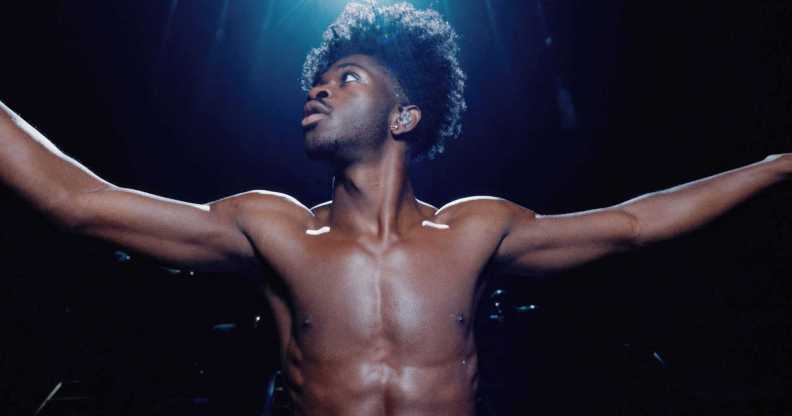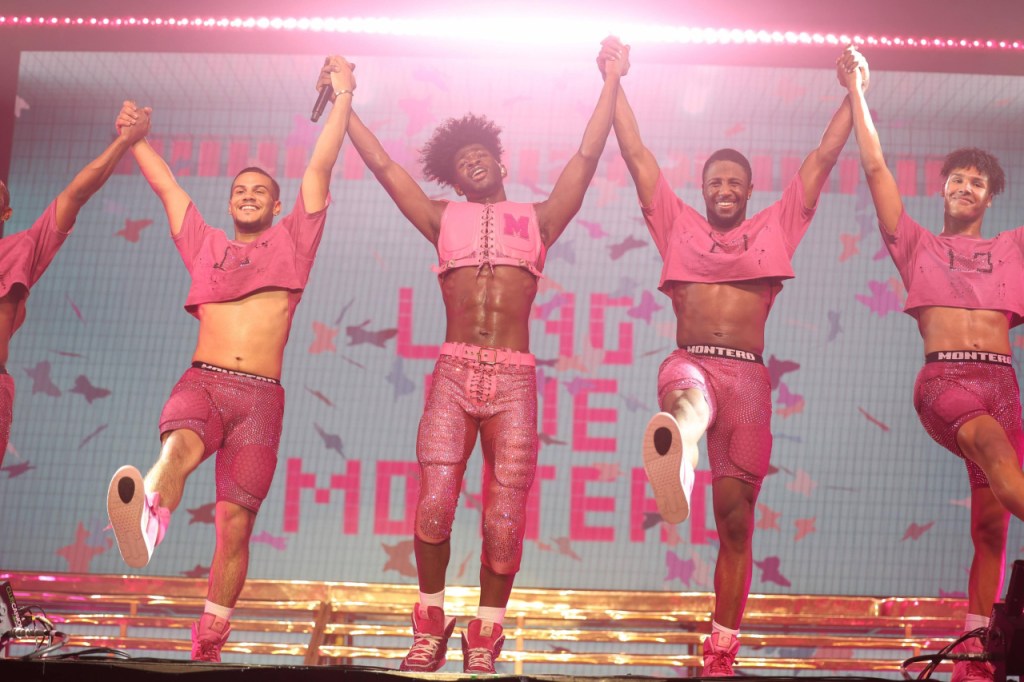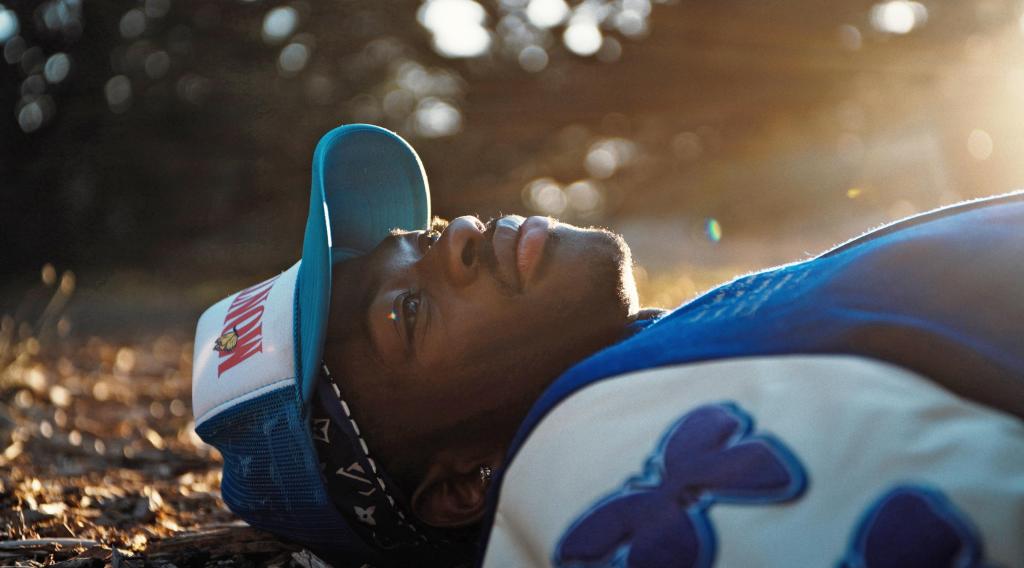Lil Nas X: Long Live Montero directors on telling the ‘uncontained’ story of a queer, Black star

Carlos López Estrada and Zac Manuel speak about Lil Nas X’s concert film, Long Live Montero (Supplied)
Lil Nas X: Long Live Montero directors Zac Manuel and Carlos López Estrada have spoken to PinkNews about directing the “Old Town Road” singer’s concert documentary and about his place in pop culture as a queer, Black figurehead.
The documentary is far from your usual offering of the genre – just like its subject.
Directed by Oscar nominees Estrada and Manuel, the film premiered in the UK at the BFI Flare London LGBTQ+ Film Festival and follows the Georgia-born rapper as he performs during his Long Live Montero tour, in support of his debut album.
Professional internet troll Lil Nas X is the only artist to have come out as gay while having a chart-topping Billboard hit, and both he and the film-makers are acutely aware of his place in the culture.
PinkNews: An obvious question to start off, what is Lil Nas X like to work with?
Zac: Lil Nas X is very sweet. He’s a special person. When we started filming, he was 22, but he’s got words of wisdom beyond his years. So, it was almost like stepping into a space with someone who knew a little bit more than they were putting on all the time, who had a certain degree of cognisance around what their position was in the world and where they came from, and a really sharp sense of humour.
We were always on our toes when we were interacting with him. Like, what’s he going to say? How can we spin off with that answer? How can we not look like dopes when we’re talking to him? He was super generous with his time.
Carlos: He’s just so quick on his feet and he’s so clever. He’s always trying to figure out a way to lighten the mood and make a joke.
I agree with Zac, making Long Live Montero was mostly us trying to keep up with Nas. I was so curious to see how he would react to thing, because his brain is working 100 times faster than most people’s. It required a lot of skill on our part to be hyper present.

PN: What inspirations did you two draw on in making Long Live Montero and how did they inform the creative process?
C: We talked a lot about music films that resonated with us. Madonna: Truth or Dare came up often in terms of how you can document a show and music through the point of view of the artist, making it feel personal.
The other reference that comes to mind is his social media. We really wanted that to influence our filmmaking from the voice that he has crafted and the dialogue he’s created with his fans, and the humour we bring to it. I think it was important for the movie to feel like it was mirroring that perspective.
Z: We wanted Long Live Montero to feel diaristic, like people were getting this insight into his every-day thoughts, from a very personal perspective. We talked pretty early on about the use of different formats of cameras and photography and wanting it to feel like you’re flipping through a feed of videos and photos and memories or remarks about what was happening or what he was thinking about at those times. He was our inspiration.

PN: How did you decide which aspects of Lil Nas X’s life to cover? Was anything off limits?
Z: He does not shy away from the controversial, so when it came to the content of the conversations we were having, I was pretty transparent about topics that also related to the bigger story that we were hoping to tell and he was very receptive.
There weren’t any moments where he was like: “That’s not something I want to talk about.” We pushed each other to discover things about ourselves. I always think about it as a process of transference. The more I can give, the more he can give and the more it creates a space for transparency.
C: He didn’t set a lot of boundaries. We thought when we were finishing up the edit that he was going to have a lot of thoughts about things that we may have heard that he wouldn’t want people to know. But he really didn’t. He had some technical thoughts about the music and some ideas of how we could deepen the film, but he didn’t have any sort of feedback in terms of what we were sharing. He let us lead.

PN: One of the most personal segments of Long Live Montero is the sequence where Lil Nas speaks about his relationship with his family, and the desire to be “the acceptable gay person”. Why was that important to include?
Z: It was important to be able to tell this story about a Black, Southern queer artist in a way that is uncontained, that is about expressing identity without any confines. I’m also from the South, so I really appreciated his desire to want to break out of this box and push himself and push his family.
He’s exceptionally clever, he pushes towards the extreme to bring people into the centre. It’s a smart way of showing people what’s ridiculous about their own biases and prejudices. And he does that in a Black, queer space.
He has a really interesting consciousness about the dynamics of power, and being the acceptable gay person means stepping into a space that maybe isn’t completely made for you, but that other people will find palatable, which is to disempower yourself.
But I think, for him, it’s all about taking his power and owning it. Then showing people what he can do with that and saying: “No, you’ve got to come over here, you’ve got to come over to my side to get to know me better.” It’s a remarkable talent to be able to wield.
C: The fact that he’s sharing these things openly is very representative of the type of person he is. I had never heard those words before, “the acceptable gay man”, and there’s so much to unpack there. It deals with so much self-awareness.
It deals with [an] openness and willingness to share some very personal processes, just so other people can reach out and say: “Maybe it’s not that crazy that I’m going through this very hard experience.
Lil Nas X: Long Live Montero is available to stream now on Amazon, Google, iTunes, Kaleidescape, Microsoft, Rakuten, Sky and Vubiquity.
How did this story make you feel?

